News feed
Change. The weight and significance of this word feels heavier in 2020; a turbulent year where the world has reckoned with its past and its future. It’s hard to describe this watershed moment; frustrating, terrifying, overdue are all but a few words that spring to mind.
Long before this year, however, there was a constant hum of women working away to, put simply, make our lives better. Australian women with an insatiable dedication to uncovering truths that keep us from turning a blind eye to discrimination, inequality and injustice.
Upon planning this shoot, we decided to get four of our country’s biggest game changers in the one room with the one goal: to share their powerful stories, vulnerable moments and how they’ve endured during times of hardship. It’s a means to perhaps inspire you during a year that has been ever so challenging.
On the next few pages, you’ll meet Anna Brown, the CEO of Equality Australia who has had a firm grasp on every major reform for LGBTIQ+ people in recent years, including her pivotal role in getting the Marriage Amendment Act across the line in 2017.
Then there’s Mariam Mohammed, the co-founder of MoneyGirl, an organisation designed to educate women on how to take control of their finances. Citing Hazrat Aishah bint Abi Bakr, Rani of Jhansi, Maya Angelou and Frida Kahlo as the women she looks up to, it’s Mohammed’s heartbreaking experiences as a teenager that will help you absorb her reasoning for doing the work she does today.
An ever-smiling Kristal Kinsela-Christie is on the following page with her story on how she grew up with next to nothing and changed the course of not only her family narrative but the opportunities for indigenous people and how they are represented in the workforce.
Finally, you’ll meet the author of Eggshell Skull, Bri Lee, an Australian writer, editor, academic, activist and qualified lawyer. Her story tells of her work as an associate in a law firm seeing sexual abuse complaints being filed through the court – and noticing some significant loopholes in our justice system.
Our pasts shape who we become – but it’s those who choose to help women in the same positions as their past selves that is truly something special. In 2020, speaking your truth is the most powerful tool we have. And while some ugly truths have been thrown at these women, here’s not just the work they do but how they rage, how they fail, how they persevere and how they overcome.
Anna Brown
Co-founder and CEO of Equality Australia
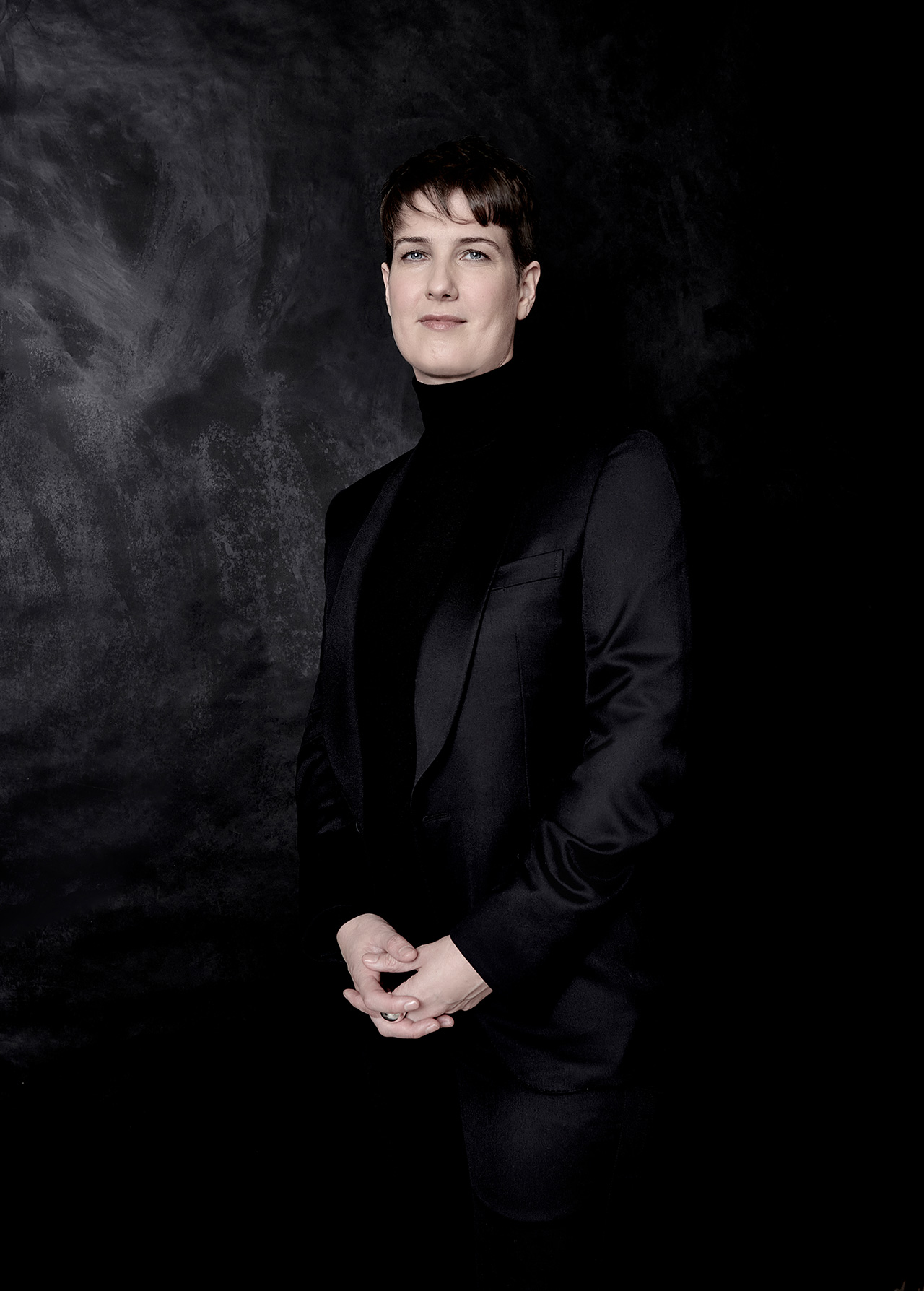
USE THE EXISTING ACHILL FARM WOOL SMOKING SUIT, SHOP IN STORE, TURTLE NECK KNIT TOP, SHOP IN STORE, ERMENEGILDO ZEGNA XXX
On December 7 2017, Oxford Street in Sydney became awash with glitter and rainbow confetti. People flooded the Mardi Gras strip in a flurry of celebration; tears of happiness, joy and relief were shed as legislation to allow same-sex marriage was, at long last, passed through the Australian Parliament. No matter your sexual orientation, many will remember exactly where they were during this historic announcement. For Anna Brown, the then-Co-Chair of the Equality Campaign, it was a window of “immediate relief and pride” as she stood in the House of Representatives in Canberra. “It is a moment I will remember forever,” she tells GRAZIA.
Brown’s fingerprints are on nearly every major reform for LGBTQI+ people in recent years. Her hard work under the likes of reformist Attorney-General, Rob Hulls – a former Australian politician and champion for human rights – and her role as Director of Legal Advocacy at the Human Rights Law Centre allowed Brown the tools to establish Equality Australia.
During Brown’s time at the Human Rights Law Centre, she played a role in several important reforms. This consisted of but is not limited to ensuring young trans people can access vital hormone treatment without the cost and delay of going to court, advancing marriage equality and furthering recognition of sex and gender diversity.
“After marriage equality was achieved, I couldn’t walk away from the battlefield and allow communities that had been viciously targeted by the ‘NO’ campaign to face new threats alone,” Brown says. “It was more important than ever for the LGBTQI+ community to have a national voice. So, I moved from the role of Co-Chair of the Equality Campaign to launch Equality Australia, with support from my colleagues at the Human Rights Law Centre.”
“Where do I start?”, Brown says when I ask her to recount the work needed to fight the Religious Discrimination Bill (also known as the Religious Freedom Bill). Proposed by the Australian Federal Government, it ‘prohibits direct and indirect discrimination on the ground of religious belief or activity in areas of public life,’ according to the Human Rights Commission. Considered deeply flawed, Brown argues it has the potential to wind back equality not only for the LGBTQI+ community, but women, people with a disability and, ironically, people of faith.
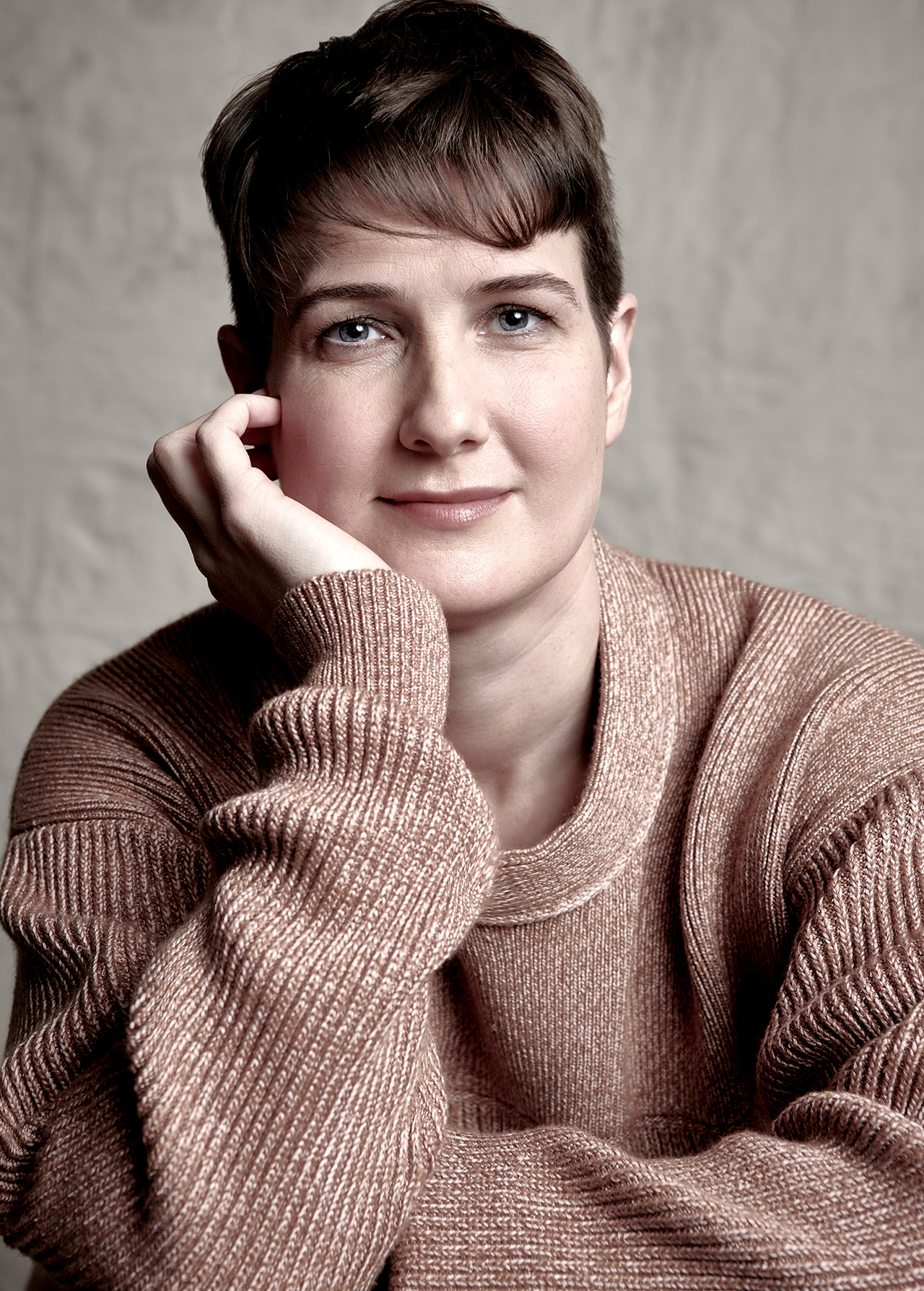
CASHMERE & SILK RIBBED WIDE NECK KNIT, SHOP IN STORE, ERMENEGILDO ZEGNA XXX
“Under the current law, students can be expelled and teachers fired from religious schools simply because they are gay or trans,” Brown says. “LGBTQI+ people can even be lawfully turned away from refuges and family violence services. We are working hard to ensure our laws protect all of us, equally.”
“We are also working to ensure trans people have access to ID documents that reflect the gender they live as; to protect LGBTQI+ people in faith communities from the profound harm caused by so-called ‘conversion therapy’ and to protect intersex children from unnecessary surgeries carried out to change their bodies to be more stereotypically male or female,” she added.
Looking back at the lives she has changed, Brown says these stories have had their own deep effect on her too. The legal trailblazer cites lessons learned from older clients who have carried the burden of shame and the stigma of a criminal conviction.
“In many cases the trauma that my clients had endured was immense, and yet they persisted in their quests for justice, almost always as a matter of principle or because of their belief in the greater good,” says Brown. “There’s nothing more rewarding than feeling like you’ve been able to play a part in changing someone’s life for the better.”
Mariam Mohammed
Co-Founder Of MoneyGirl, Personal Branding Coach, Diversity Advocate
When we speak about “game changers” in this country, Mariam Mohammed’s name is often referenced over and over again. A vocal advocate for sexual assault survivors and the founder of financial literacy company for women, MoneyGirl, Mohammed was recently recognised as one of the Australian Financial Review’s 100 Women Of Influence in the Young Leader category. But it’s what led her to this point – and the life she lived prior to coming into her own – that is particularly compelling.
Growing up in Karachi in Pakistan with loving but conservative parents, Mohammed remembers regularly clashing with her father over “everything from me painting (because the art is the devil tempting you) to me refusing to wear a hijab (that covers my head)”. Conforming to gendered expectations at home, Mohammed would live a double life and leave the house in “approved” clothes before changing at a friend’s place into attire that actually represented the young woman she was becoming. “Our friends are true family,” she says. “We’d talk about what we actually care about in our lives, have opinions, debate, lament on the patriarchy, and chat about all the good stuff that comes with sisterhood.”
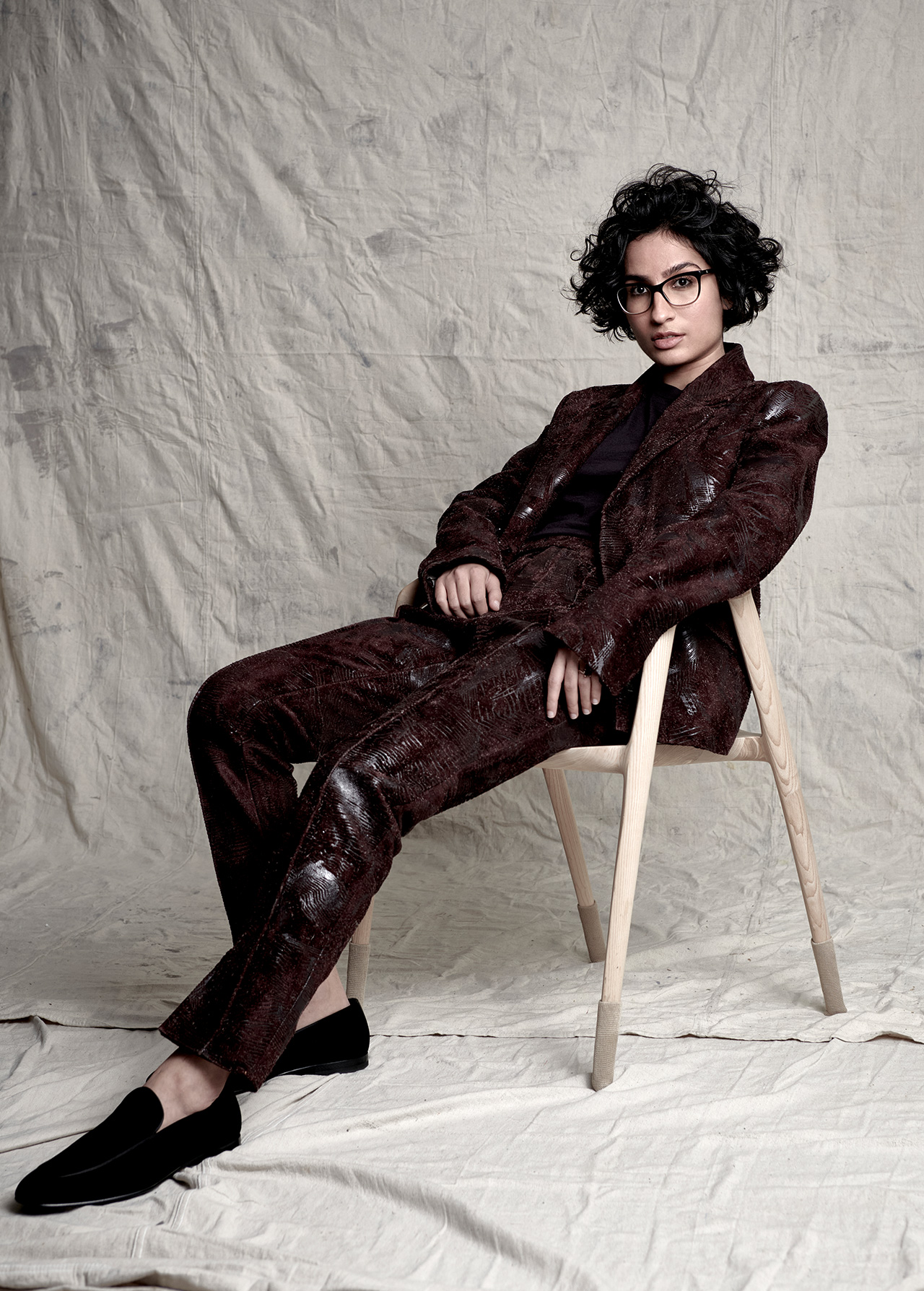
FURRY CRUST LEATHER SUIT WITH BROKEN MOIRE COLOURED LASER EFFECT, SHOP IN STORE, USE THE EXISTING ACHILL FARM WOOL KNIT TOP, SHOP IN STORE, VELVET LIDO SLIP ON SHOES, SHOP IN STORE, ERMENEGILDO ZEGNA XXX
As a teenager, Mohammed was sexually assaulted by an ex-boyfriend after only a few months of dating. “Because neither of us had ever been given sex and consent education, neither of us immediately qualified it as rape,” she says. “In fact, I would only qualify it as rape years later when I learned what consent was and that I don’t owe sex to anybody.”
“If I told my parents what had happened, I would have to give up everything and live out the rest of my life on their terms – specifically, my father’s terms,” she continues. “He was the moneyman, the head of the family. All final decisions rested with him. He exercised that control often. Deprivation or withholding of resources was often a punishment for disobeying him and choosing your own path.”
In March 2012, the then-19-year-old attempted to take her own life. After “failing”, Mohammad says she knew there had to be more to live for and decided to move to Australia. “I remember bursting into tears as the plane took off and I looked down on Karachi. The flat rooftops growing smaller. The plane flying through the smog that has that distinct Karachi smell. The hubbub of the markets and rickshaws and buses. As I saw it all shrinking away, I cried because I knew this was it. This was the end of a chapter. I was never coming back,” she remembers.
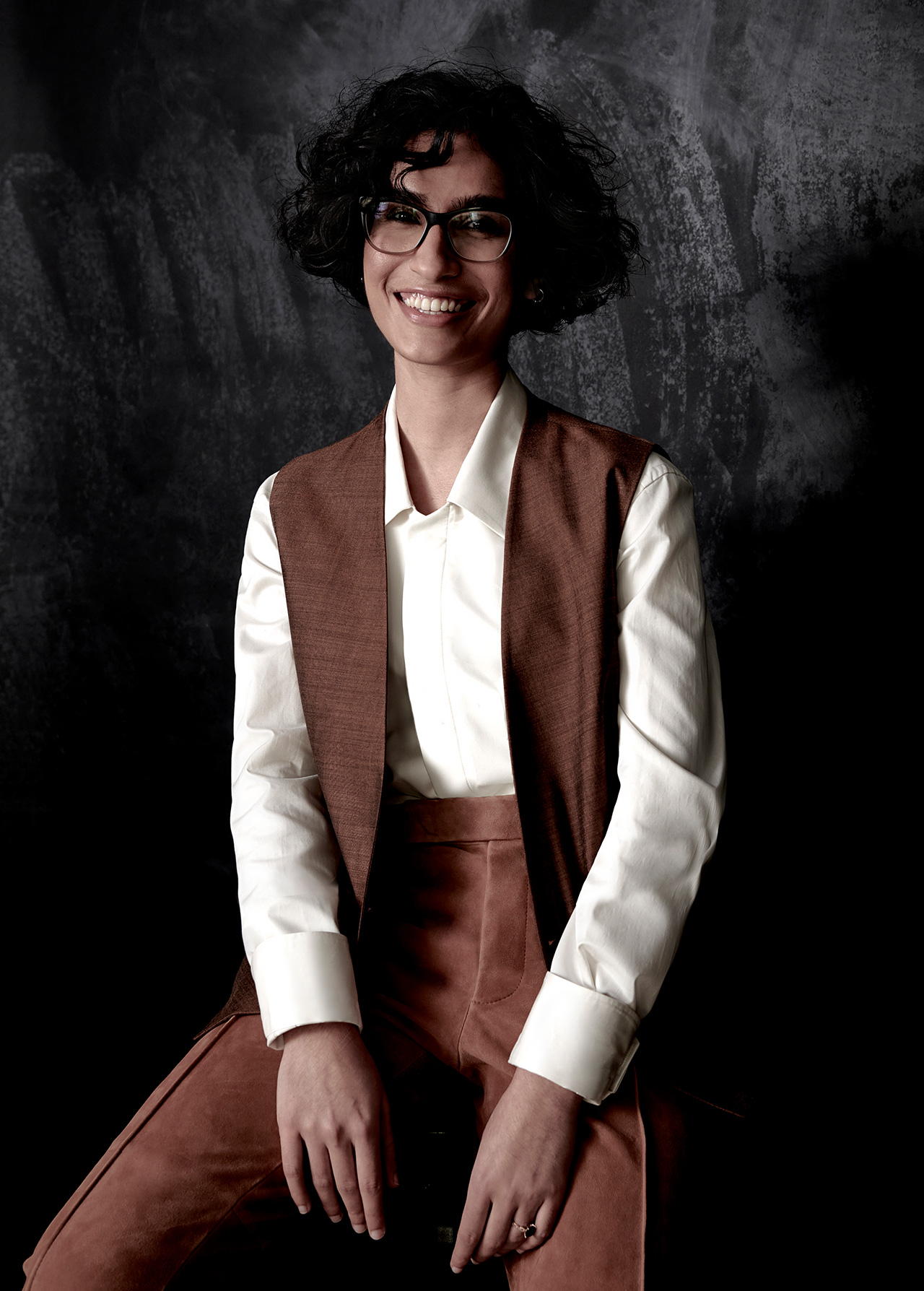
TROPICAL WOOL & MOHAIR VEST, SHOP IN STORE, LOST POINTED COLLAR SHIRT, SHOP IN STORE, LAMB LEATHER TROUSERS, SHOP IN STORE, ERMENEGILDO ZEGNA XXX
What she was watching shrink away is hard to grasp if you don’t know much about the country. But here’s some things you should know. “One hundred per cent of Pakistani women will be sexually harassed at some point in their lives. In their homes, on the streets, and in workplaces,” says Mohammed. “One in four children will be raped before reaching puberty. A woman’s testimony in court is worth only half that of a man. So, if she reports her rape and the man denies it, she can be charged with adultery – which is a punishable crime. It means that she can be murdered by her family members without any consequences for the perpetrator because the Pakistani law allows familial perpetrators to be ‘forgiven’ for the crime.”
Arriving in Australia, Mohammed had just $300 to her name, something she says left her feeling “helpless” and “disempowered”. “My entire identity seemed to be a disadvantage,” she says. Trying to find work, Mohammed experienced horrendous racial discrimination, so much so that she considered changing her last name. But even if she felt disempowered at the time, Mohammed is mighty and kept going. “Boy, I’m glad I didn’t change it,” she says.
Mohammed’s experiences shone a huge spotlight on the freedoms that being financially independent can bring. “In the economic system that we live in – whether we like it or not – money underpins our basic human right to choose. If somebody else in your life controls your money, then the choice is theirs, not yours.”
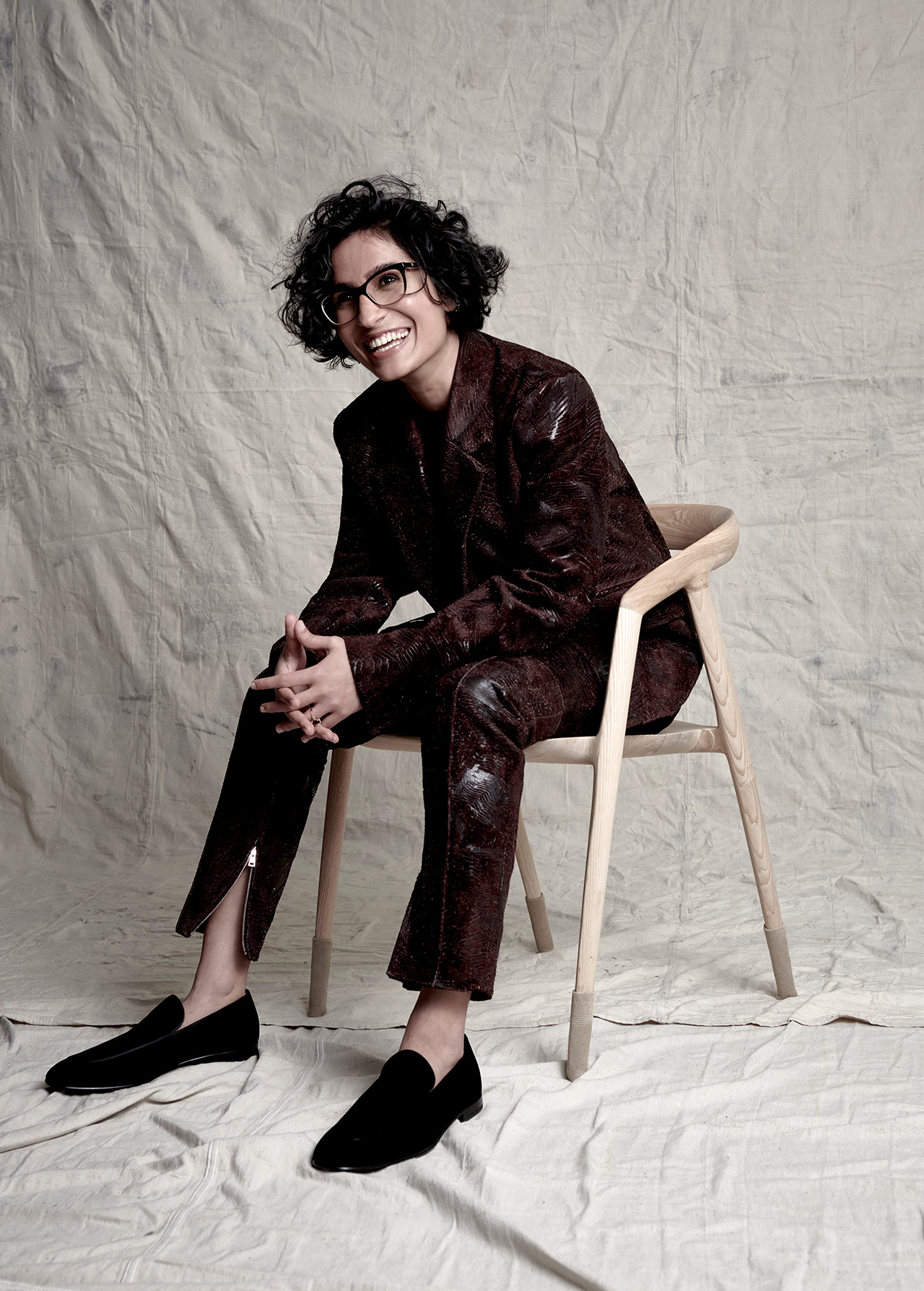
FURRY CRUST LEATHER SUIT WITH BROKEN MOIRE COLOURED LASER EFFECT, SHOP IN STORE, USE THE EXISTING ACHILL FARM WOOL KNIT TOP, SHOP IN STORE, VELVET LIDO SLIP ON SHOES, SHOP IN STORE, ERMENEGILDO ZEGNA XXX
And this is why she founded MoneyGirl, an organisation which inspires and teaches women to take charge of their own money and thus their lives. “We make financial education fun, easy and engaging. We do this by delivering a structured, evidence-based curriculum of workshops co-designed by young women and financial experts,” Mohammed explains. “This is a basic survival skill. No one knows what might happen tomorrow… You belong in the money game just as much as old, white John Doe.”
Mohammed is also a professional speaker on diversity, inclusion, community development and resilience. She is at the helm of a personal branding course called Nail Your Brand that teaches changemakers how to create a strong personal brand in order to increase their income and amplify their impact.
When I ask Mohammed what feelings are conjured up when she looks back at her life in Pakistan through the context of where she is today, she is grateful. “Every experience in life has brought me to where I am today. Which is here – in a global magazine speaking to the world. And this is exactly where I belong. I have the privilege to use my itsy-bitsy platform to open doors and keep them open for the women to come after me,” she says. “I would tell my 19-year-old self that you are enough. Brown enough. Aussie enough. Muslim enough. Good enough.”
Gates to Mariam’s signature course, Nail Your Brand, are now open! Discover how to create a CLEAR and CONCISE personal brand so you can land that next client or job without feeling so lost. Enrolments close on 3rd November. Get in quick!
Kristal Kinsela-Christie
Founder and Managing Director of Indigenous Professional Services
Hailing from Blacktown in Sydney’s Western Suburbs, it was just eight years ago that Kristal Kinsela-Christie first met an Indigenous person practicing in business. At the time, the consultant – only the third member of her family to obtain a university degree – worked at a non-for-profit organisation, Supply Nation, where she was astounded that Indigenous people were working as lawyers, running consultancy businesses and overseeing construction companies.
Following a divorce and custody battles for her two children, the now-40-year-old mother of three recalls the catalyst moment where she decided to set up a business of her own – one she admits to having no idea what she was doing.
“I’d left a six-figure income to move back to Port Macquarie to work for myself and to put my kids in the forefront,” the entrepreneur tells GRAZIA. “I started subcontracting to other Indigenous businesses and started working for and seeing how they operated and then I met my business partners at the end of 2015.”
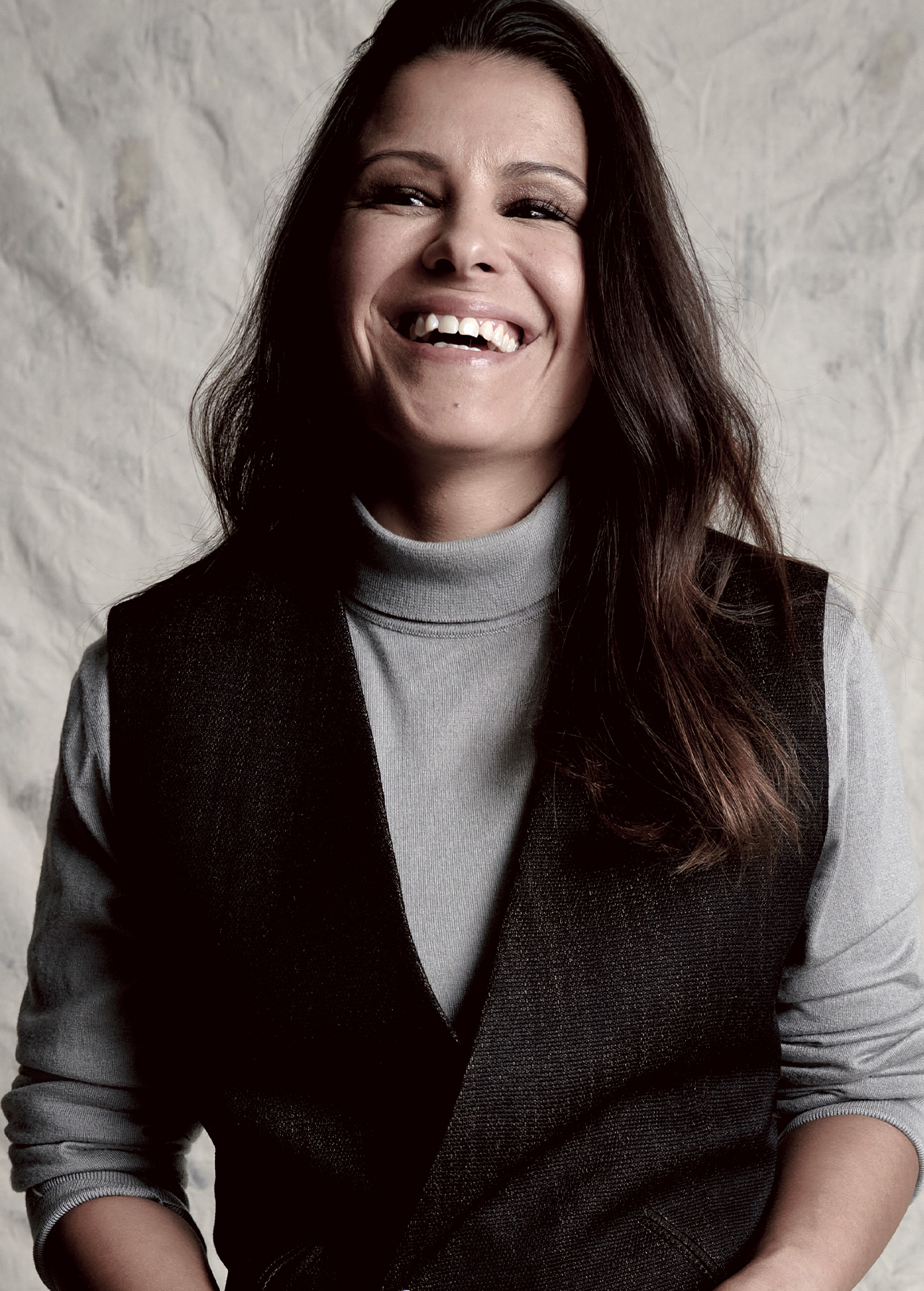
WOOL MOHAIR COPPER & BLACK DENIM LOOK VEST, SHOP IN STORE, HYBRID CASHMERE KNIT TOP, SHOP IN STORE, ERMENEGILDO ZEGNA XXX
At the time, the Commonwealth Government had just introduced the Indigenous Procurement Policy. The initiative was put in place to allow the Aboriginal community opportunities for entrepreneurship and business development. By 2020, the target was to ensure that the Commonwealth purchased at least three percent of goods, services and contracts from Indigenous-owned companies. Prior to the implementation of the policy, Indigenous enterprises secured only limited Commonwealth business.
In 2016 Kinsela-Christie reached out to Supply Nation to survey clients on the gaps and experiences of Indigenous-owned businesses. This information formed advocacy work where she and her business partners won a multi-million-dollar contract with the Australian Government.
“I lobbied the Minister for Indigenous Affairs, I lobbied the Prime Minister and the Cabinet. I started writing to ministers and we started to create a service line [for] Indigenous business. We were assisting the government to understand what their gaps were,” explains Kinsela-Christie. “We were really fortunate to get a contract with the Department of the Prime Minister and Cabinet, which was a landmark contract because there was just three of us practically working for nothing, and then we won this big multi-million-dollar contract. We had to employ staff and we were providing a national service.”
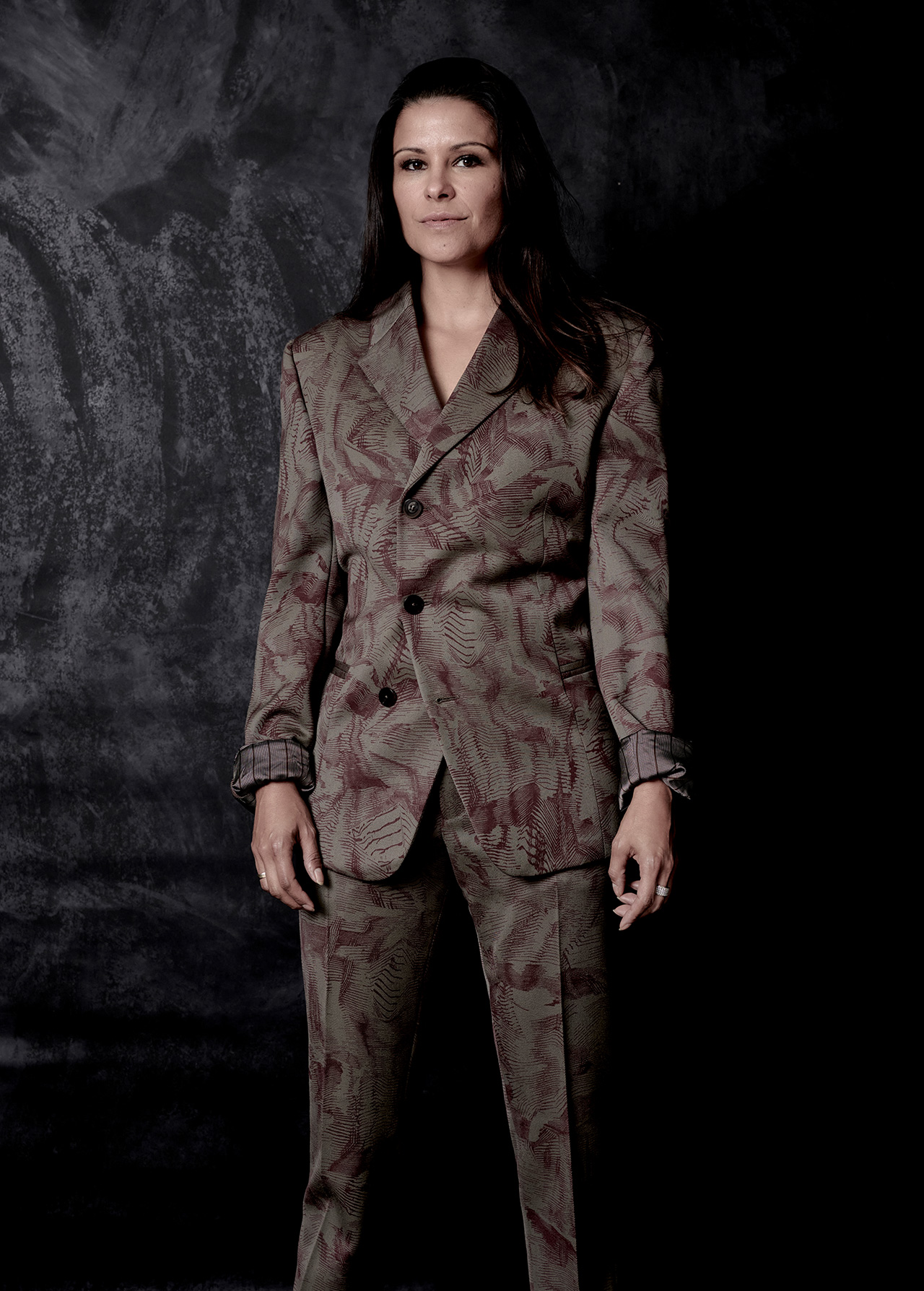
PRINTED WOOL GABERDINE SUIT, SHOP IN STORE, ERMENEGILDO ZEGNA XXX
Kinsela-Chrisite is the owner and director of Indigenous Professional Services (IPS), a majority Indigenous-owned management consultancy company. From organisational development and leadership, policy and evaluation and business advisory, IPS creates employment opportunities to the country.
The importance of a sustainable Indigenous economy comes from breaking the cycle of poverty which Kinsela-Christie has experienced first-hand. Living in Doonside, the Jawoyn and Wiradjuri nations descendent says she didn’t know any other way of life, recalling times where she and her family lived off the same food or had facilities cut off. But the strong values her mother instilled in her has spurred her on to continue seeking a better life for herself and others.
“When I first left school, I just wanted to be a flight attendant and I was working behind a bar. This was before I had gone to university. One day Mum said to me – and it’s the greatest piece of advice anyone could give to you – ‘Kristal nobody wants to see a 40-year-old barmaid, your looks are only going to get you so far, go and get yourself a real job.’
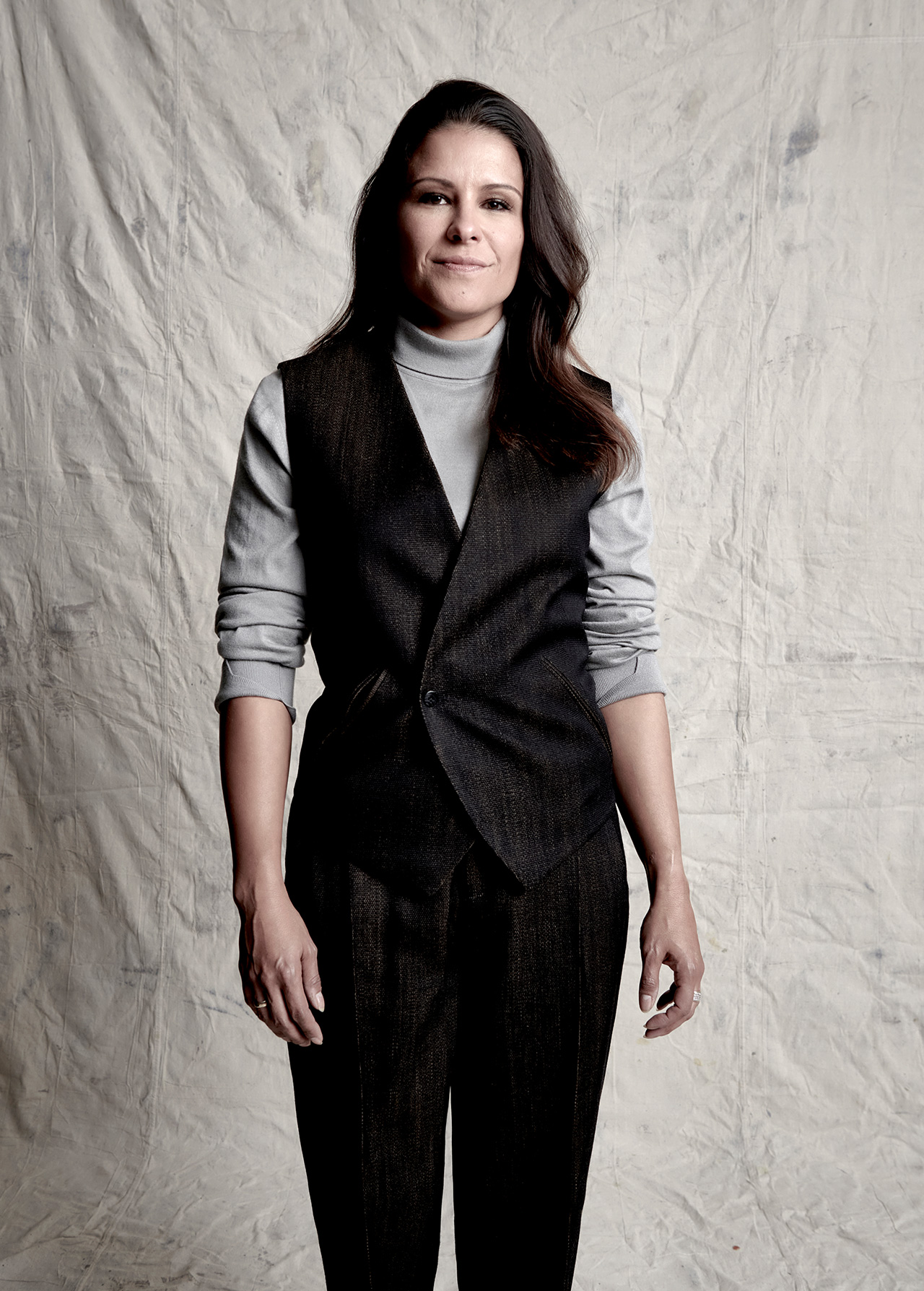
WOOL MOHAIR COPPER & BLACK DENIM LOOK VEST & PANTS, SHOP IN STORE, HYBRID CASHMERE KNIT TOP, SHOP IN STORE, ERMENEGILDO ZEGNA XXX
“I know just from a personal perspective that my kids will never be on welfare and to me that’s so incredibly important because I’ve set the platform and the foundation now. I’m a role model to them. They can see that hard work does pay off and they know how poor I was as a kid.”
Nowadays, Kinsela-Christie wears many hats. In addition to IPS, she has directorships across the National Aboriginal Sporting Chance Academy (NASCA) and Worthwhile Ventures.
“For me my business is only as great as the sector and so what keeps me going is, the notion that every little thing I do is actually growing the sector and creating more opportunities.”
Bri Lee
Author and Journalist
“Most things in life wax and wane – work, money, body – but if you can make sure you’ve got good people around you, you’ve won the whole game,” Bri Lee tells GRAZIA. As an award-winning author, writer and academic, the young Australian has an extremely impressive and extensive resumé of achievements. But according to Lee, while there have been “big ceremonies and press and awards, knowing my writing is affecting individuals like this is an incomparable feeling and a real privilege.”
At just 28-years-old, Lee is behind Eggshell Skull, a fierce and compelling memoir which details her own reckoning with the past – and the injustices of Australia’s legal labyrinth – as well as the stories around her. As a bright-eyed judge’s associate at the Queensland District Court, Lee never thought she would be exposed to the cruel and endless processions of sexual offence cases that saw little justice for its victims. Her battle began when the legal graduate had gone to the police to make a complaint. She realised there was another side to the legal process that most lawyers never see – and one that looked very different for women.
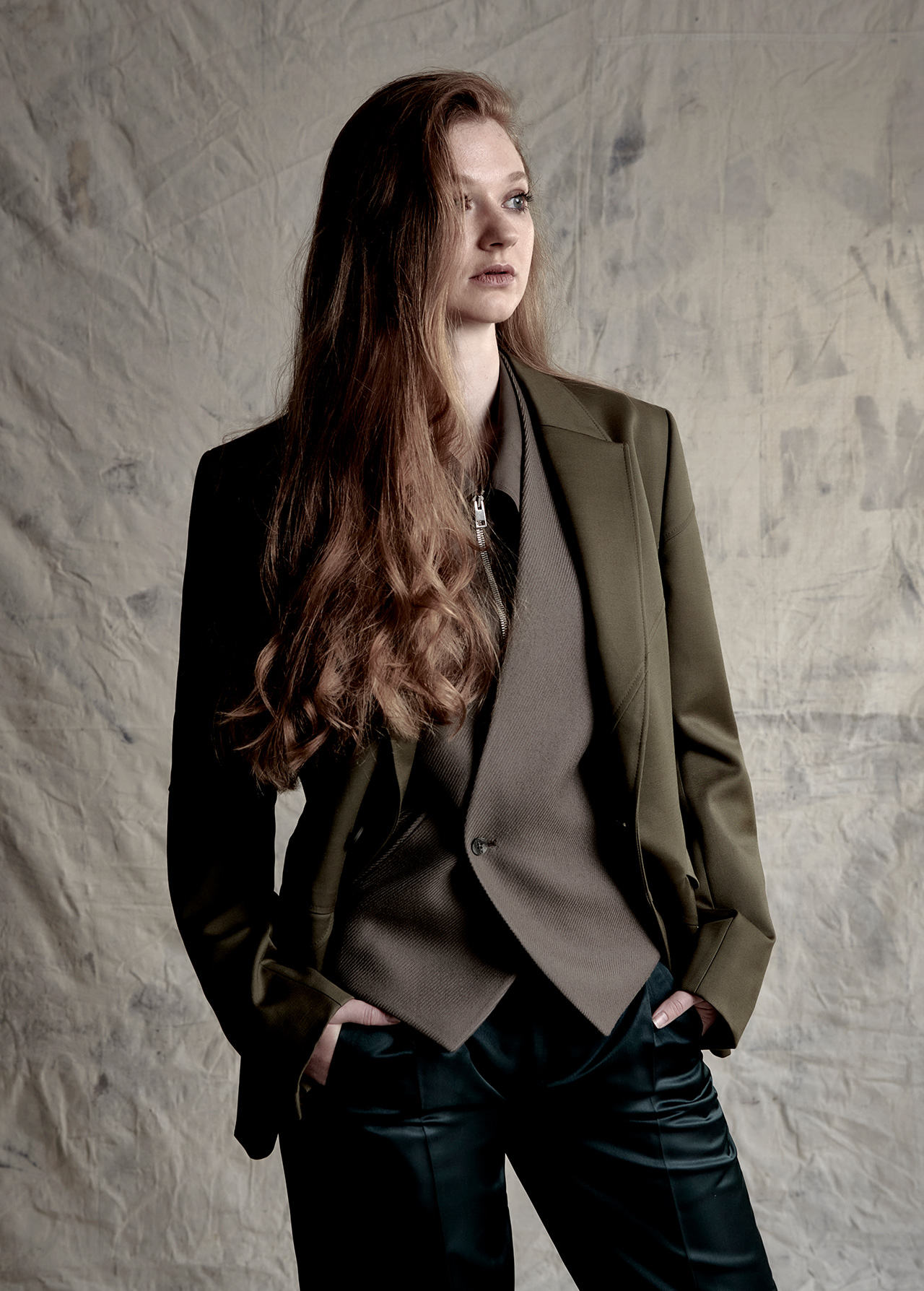
USE THE EXISTING ACHILL FARM WOOL JACKET (PART OF SUIT), SHOP IN STORE, WOOL GABERDINE VEST, SHOP IN STORE, LOW POINTED COLLAR SHIRT WITH ZIP FRONT, SHOP IN STORE, DOUBLE PLEATED SILK SATIN TROUSERS, SHOP IN STORE, ERMENEGILDO ZEGNA XXX
“When I started seeing this, I knew I had to speak out about it. Not many people have truly seen both sides of the courtroom that way,” Lee recounts. “For the survivors, a trial date represents years of re-traumatisation and suffering and waiting. The system will be unfair so long as three or four years is considered a “reasonable” waiting time for a survivor to find out if their abuser will be found guilty. Police officers can be wonderful, or they can be terrible, but nothing about this process should be left to such luck and chance.”
This was the catalyst moment for the book.
With stunning realisations for its readers, Eggshell Skull is not only a narration of Lee seeking justice, but a tell-all on why women often withdraw their complaints – if they speak out at all. The book’s title is a reference to the one-hit punch: “If a single punch kills someone because of their thin skull, that victim’s weakness cannot mitigate the seriousness of the crime. But what if it also works the other way? What if a defendant on trial for sexual crimes has to accept his ‘victim’ as she comes?” Lee asks.
According to Lee, many women actually don’t stay quiet but are instead either ignored or punished as a result of speaking out. Other women (and sometimes men) see this happening and know “they can’t necessarily rock the boat themselves.”
“It’s not really fair to ask the people suffering under rampant and serious misogyny to risk their necks trying to draw attention to it when there’s no protections for them or assurances that their efforts will see outcomes,” Lee says.
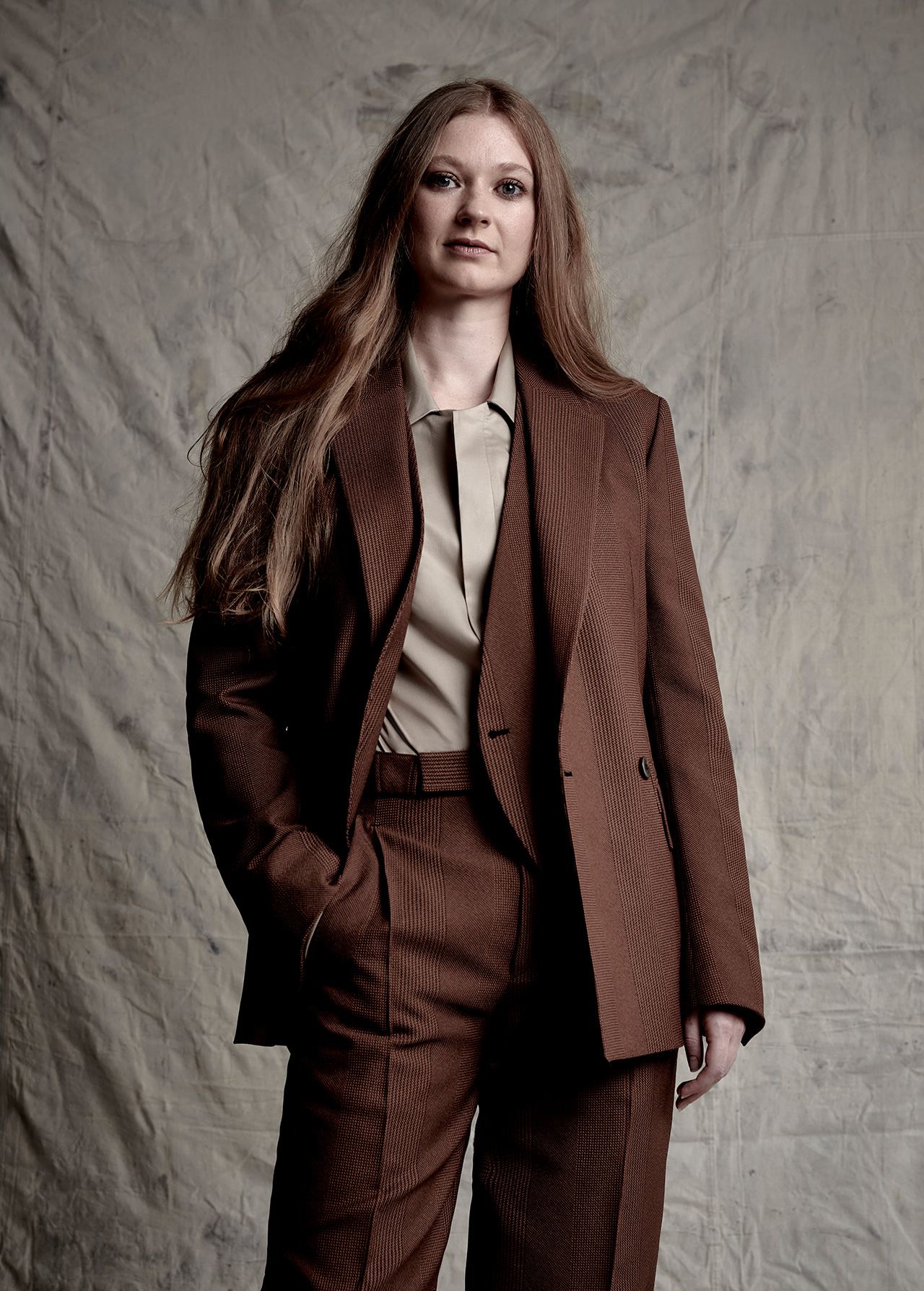
USE THE EXISTING ACHILL FARM WOOL SUIT, SHOP IN STORE, LOW POINTED COLLAR SHIRT, SHOP IN STORE, ERMENEGILDO ZEGNA XXX
In turn, this experience has led the writer together with Professor Jonathan Crowe to co-author legal research and build the website consentlawqld.com, a platform for advocacy that recently led to the Queensland Attorney-General referring consent and the ‘mistake of fact’ excuse to the Law Reform Commission. In 2019, Lee was named for this work as a “Woman Of Influence” in the Australian Financial Review. She is qualified to practice law, but doesn’t, and instead is a trailblazer in justice for women across sexual assault and abortion rights through potent writing and pioneering academia.
I ask Lee what she would say and ask of our current policy makers in Australia. “Laws come from the past. Until the 1970s in parts of Australia, husbands were allowed to rape their wives. Until just a few years ago abusers were allowed to cross-examine their victims in court. Every part of the legal process is affected by people and it shows us our priorities and prejudices,” she explains. “If you’re a person with any position of power or influence, please consider how your priorities and prejudices are affecting the system. And if there is just one thing you have time to look at, let it be the way the system treats Aboriginal and Torres Straight Islanders. There is no better example of our national failings than that.”
CHAIR CREDIT (TOP): WOOL RIBBED BEANIE, Z ZEGNA, SHOP IN STORE. MAKI CHAIR, MCM HOUSE, SHOP NOW
Creative Direction: Marne Schwartz
Photography: Myles Pritchard
Fashion Direction: Kim Payne
Hair: Richi Grisillo
Makeup: Annabel Barton










